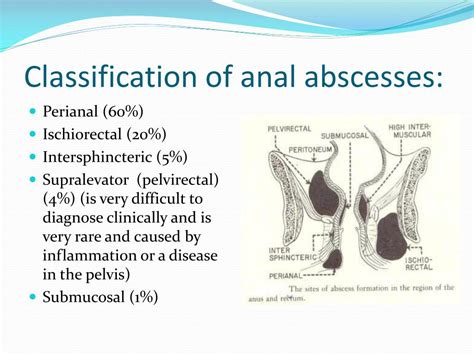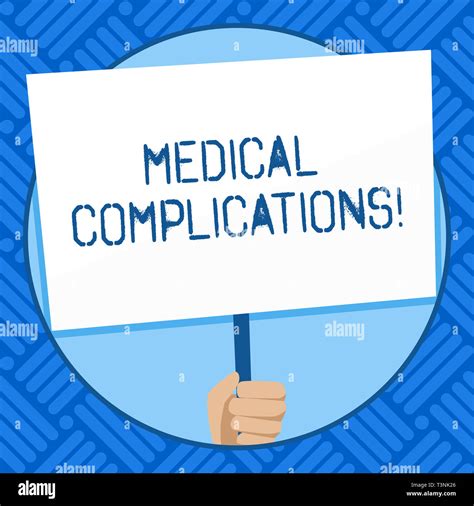Intro
Discover effective Anorectal Abscess Treatment Options, including drainage, antibiotics, and surgery, to alleviate painful symptoms and prevent complications, such as fistulas and perianal sepsis.
The presence of an anorectal abscess can be a painful and distressing condition for those who experience it. An anorectal abscess is a collection of pus that has built up in the tissue around the anus or rectum, often resulting from a bacterial infection. This condition requires prompt medical attention to prevent further complications and alleviate symptoms. Understanding the various treatment options available is crucial for individuals seeking relief from anorectal abscesses. The importance of addressing this condition lies in preventing the spread of infection, reducing pain, and restoring normal bodily functions. As the condition can significantly impact an individual's quality of life, exploring the available treatments is essential for those affected.
Anorectal abscesses can vary in severity, and the approach to treatment depends on several factors, including the size and location of the abscess, as well as the individual's overall health. In some cases, anorectal abscesses may be treated with antibiotics alone, but often, surgical intervention is necessary to drain the abscess. The decision on the most appropriate treatment pathway is typically made by a healthcare professional after a thorough examination and diagnosis. Early intervention is key to preventing the abscess from rupturing, which can lead to more severe infections and prolonged recovery times. Furthermore, understanding the causes and symptoms of anorectal abscesses can help individuals recognize the condition early on, facilitating timely medical intervention.
The management of anorectal abscesses involves a combination of medical and surgical approaches, each designed to address the specific needs of the patient. Treatment options range from conservative management with antibiotics and pain relief medications to surgical drainage, which may be performed under local or general anesthesia, depending on the abscess's size and location. In addition to these treatments, lifestyle modifications and follow-up care are essential components of the recovery process, helping to prevent recurrence and promote healing. By exploring these treatment options in depth, individuals can better understand their choices and work closely with their healthcare providers to develop an effective treatment plan tailored to their needs.
Anorectal Abscess Overview

Causes and Risk Factors
The development of an anorectal abscess is often linked to bacterial infections, with certain bacteria such as Escherichia coli (E. coli), Staphylococcus aureus, and Streptococcus faecalis commonly implicated. Other factors that may increase the risk of developing an anorectal abscess include anal sex, particularly if protective measures are not used, previous history of anorectal abscesses, and conditions that affect the immune system, such as diabetes or HIV/AIDS. Understanding these causes and risk factors can help individuals take preventive measures and recognize the signs of an anorectal abscess early on.Treatment Approaches

Surgical Drainage
Surgical drainage is the primary treatment for anorectal abscesses, especially for larger abscesses or those that do not respond to antibiotic therapy. The procedure involves making a small incision in the abscess to drain the pus. The incision site may be left open to heal from the inside out or partially closed, depending on the surgeon's judgment. After surgery, patients are typically prescribed pain medications and antibiotics to manage discomfort and prevent infection. Proper wound care and follow-up appointments with the healthcare provider are crucial for ensuring the abscess heals correctly and minimizing the risk of complications.Recovery and Follow-Up Care

Lifestyle Modifications
Making certain lifestyle modifications can help in the healing process and prevent future occurrences of anorectal abscesses. Maintaining good hygiene, avoiding tight clothing, and practicing safe sex are among the preventive measures that can reduce the risk of developing an anorectal abscess. Additionally, managing underlying conditions such as diabetes and maintaining a healthy weight can also play a role in prevention. By adopting these lifestyle changes, individuals can reduce their risk and improve their overall health.Complications and Prevention

Fistula Formation
The formation of a fistula is a significant complication of anorectal abscesses. A fistula can develop as a result of the abscess creating a tunnel under the skin, connecting the rectum or other parts of the intestine to the skin. Treatment of a fistula often requires surgery to close the abnormal connection, which can be a complex procedure depending on the fistula's location and the individual's overall health. Understanding the risk factors for fistula formation and the importance of proper wound care can help individuals take steps to prevent this complication.Current Research and Advances

Future Directions
As research into anorectal abscesses progresses, future directions may include the development of less invasive surgical procedures, new antibiotics that are more effective against the bacteria that cause these abscesses, and a greater understanding of the role of diet and lifestyle in prevention. Furthermore, advancements in diagnostic techniques could lead to earlier detection and treatment of anorectal abscesses, potentially reducing the risk of complications and improving patient outcomes. By looking towards the future of anorectal abscess treatment, individuals can be optimistic about the potential for more effective and less invasive treatments.Conclusion and Final Thoughts

We invite you to share your thoughts, experiences, or questions about anorectal abscess treatment in the comments below. Your engagement can help others understand this condition better and seek the help they need. If you found this article informative, please consider sharing it with others who might benefit from this information.
What are the symptoms of an anorectal abscess?
+Symptoms of an anorectal abscess can include severe pain in the anal or rectal area, swelling, redness, and discharge of pus. Fever, chills, and difficulty controlling bowel movements may also occur.
How are anorectal abscesses treated?
+Treatment for anorectal abscesses typically involves surgical drainage of the abscess, which may be performed under local or general anesthesia. Antibiotics and pain medications may also be prescribed to manage the infection and discomfort.
Can anorectal abscesses be prevented?
+While not all cases can be prevented, certain lifestyle modifications such as maintaining good hygiene, practicing safe sex, and managing underlying health conditions can reduce the risk of developing an anorectal abscess.
